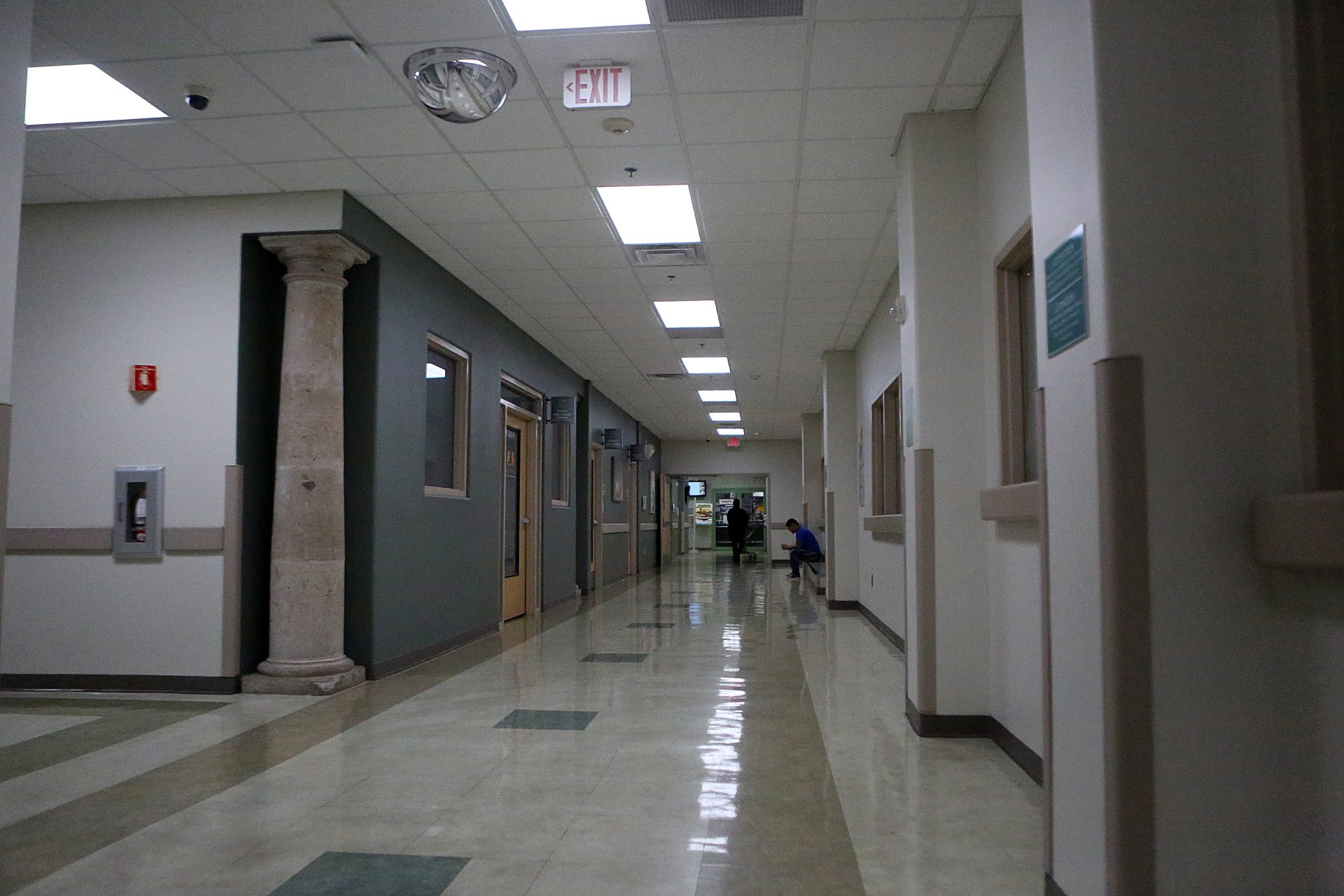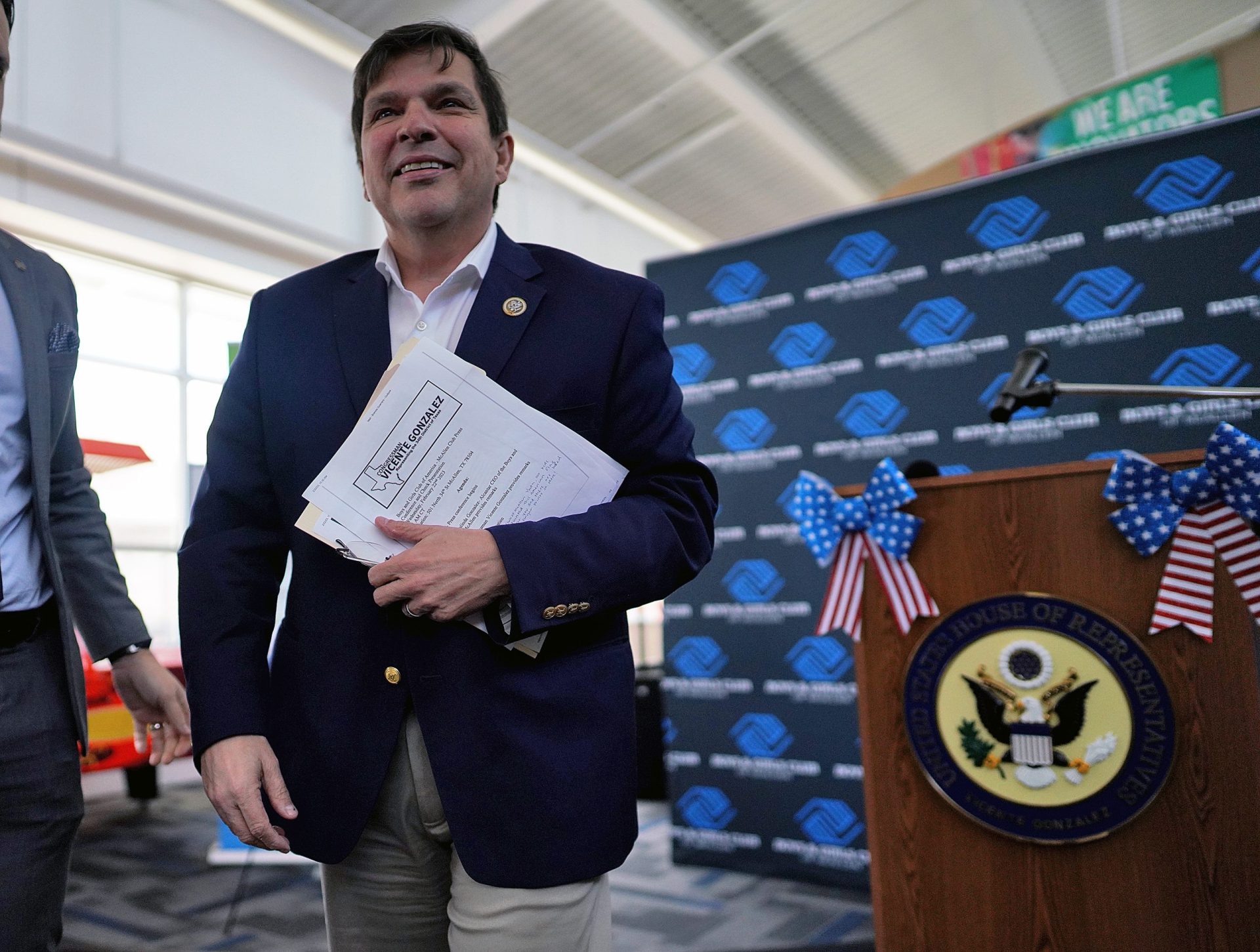You may not make it without insurance.
This is how a cancer survivor described the importance of keeping health benefits like Medicaid, Medicare, CHIPS and other insurance programs for vulnerable populations in the U.S.
California native Elvia M. Gibbs, who has lived in the Rio Grande Valley for 18 years, has rung the bell indicating her victory over cancer, but is now deeply concerned with the recent budget proposals that may cut into what she said is life-saving treatment.
And now that the House passed a budget resolution Thursday that many fear would lead to possible Medicaid cuts, the American Cancer Society’s Cancer Action Network is coming forward with similar concerns about how this could affect patients.
As proposed, the Trump administration’s budget includes $880 billion in cuts, and while it hasn’t officially been on the chopping block, economists have indicated that it can’t be done without cutting Medicaid, which in 2023 required $871 billion in funding.
Lisa Lacasse, president for the network, argues that if Medicaid cuts occur it would be detrimental to cancer patients, survivors and anyone who may develop the disease.
As of November 2024 there were about 80 million enrolled in Medicaid and CHIPS across the U.S., according to data from Medicaid.gov.
“Research consistently shows that access to health insurance coverage through Medicaid increases cancer screenings rates, early-stage cancer diagnoses, and improves access to timely cancer treatment and survival rates,” Lacasse said in a statement. “Further, access to health insurance coverage is one of the most significant determining factors in an individual’s chance at surviving cancer.”
Lacasse believes that Medicaid cuts would likely result in a loss of services, such as prescription drugs for some and coverage all together for others.
She added that Medicaid is a “lifeline” for cancer patients; in fact, one out of 10 people relied on Medicaid for their health care in 2023.
 The hallways at DHR Health Women’s Hospital on Wednesday, Aug. 28, 2024, in Edinburg. (Joel Martinez | jmartinez@themonitor.com)
The hallways at DHR Health Women’s Hospital on Wednesday, Aug. 28, 2024, in Edinburg. (Joel Martinez | jmartinez@themonitor.com)‘FAIR CHANCE AT LIFE’
Last year at just 37-years-old, Gibbs was diagnosed with breast cancer. She added that she was fortunate enough to have private health insurance that allowed her to get the necessary treatments.
Although doctors were able to remove the cancer and she rang the bell, Gibbs explained that treatment doesn’t end there and now takes additional preventative treatment.
“I take about four to five different medications a month, that helps with the possibility of the cancer not reoccurring since I did have a high recurrence rate, and one of those medications alone is a little bit over $17,000 a month (without insurance coverage) to take,” Gibbs said.
Expenses such as the cost of one medication that Gibbs is prescribed emphasize the need for people to have access to Medicaid and other health insurances.
The kind of insurance is equally important, she said. Motivated by cases in which some people are denied coverage for certain medicine or procedures, Gibbs now serves as an advocate for people to have better access to “great” health insurance coverage.
In 2024 Gibbs co-founded the Titi’s Tatas Foundation, which helps women who don’t have health insurance by paying for their mammograms as well as continuing to spread awareness on the importance of early detection.
“Access to health insurance coverage is one of the most significant determining factors at your chance of surviving cancer so, if Congress were to approve the budget in its current form they would be ripping away that chance of survival from millions of people,” Gibbs said.
Her voice began to tremble as she thought about what people go through whenever they have to wait for their treatment to be approved.
“We all deserve a fair chance at life,” Gibbs said. “Today it might be for me but tomorrow it could be for you and you wouldn’t want someone to take away that privilege from you.”
Medicaid has also aided individuals with medical debt, keeping rural hospital doors open as well as creating jobs across communities and helping people stay or become healthier.
 A doctor and a patient speak while sitting at the desk at a hospital. (Adobe Stock)
A doctor and a patient speak while sitting at the desk at a hospital. (Adobe Stock)Cassandra Perez, the network’s grassroots manager for Texas, explained that cutting Medicaid would not only disrupt access to treatment and care but “crush” people with medical debt.
“Access to healthcare coverage is actually one of the greatest predictors of whether or not somebody is able to survive their cancer,” Perez said. “That is the biggest area where Medicaid comes in. It’s allowing people to access their screenings, their treatment, diagnostic testing, surgery, prescriptions, follow-up care — Medicaid covers all of that for millions of Americans who have cancer.”
Lacasse said that whether the bill specifically says there will be Medicaid cuts or not, the network will continue to oppose slashing the program.
“For decades, (the network) has advocated for increased access to health insurance through Medicaid and will continue to push at the federal and state levels in support of expansion of the program and against policies that jeopardize individuals’ access to lifesaving health insurance coverage,” Lacasse said.
THE NUMBERS
There are more than 357,000 people living in the Valley who are enrolled in Medicaid.
The Medicaid caseload in the Valley, as previously reported by MyRGV.com, is 228,587 in Hidalgo County, 104,070 in Cameron County, 20,184 in Starr and 4,745 in Willacy counties. There are 157 cases of these cases for breast and cervical cancer patients.
Perez said high poverty rates in the area as well as the high uninsured and underinsured rates are exacerbating.
“That is what we’re advocating the most is ensuring that those who would be impacted by the Medicaid cuts — because they don’t have any ability to obtain insurance through any other means — maintain their ability to access healthcare,” Perez said.
 U.S. Rep Vicente Gonzalez makes his way from the podium after donating $2 million dollars to the Boys & Girls Club of McAllen on Wednesday, Feb. 22, 2023, in McAllen. (Joel Martinez | jmartinez@themonitor.com)
U.S. Rep Vicente Gonzalez makes his way from the podium after donating $2 million dollars to the Boys & Girls Club of McAllen on Wednesday, Feb. 22, 2023, in McAllen. (Joel Martinez | jmartinez@themonitor.com)CONGRESSIONAL REACTIONS
U.S. Rep. Vicente Gonzalez, D-Brownsville, said in a statement Thursday that under the Republican budget resolution about 204,977 people in the 34th congressional District of Texas who are on Medicaid are at risk of losing their health care, which accounts for 166,379 children and 32,000 seniors.
“For thousands in South Texas, Medicaid is not a safety net, it is a lifeline that cannot be cut,” Gonzalez said. “We must work together to ensure we pass a budget that is fiscally responsible without harming the well-being of vulnerable South Texans and Americans.”
 U.S. Rep. Monica De La Cruz, R-McAllen, is interviewed at The Monitor on Monday, Nov. 25, 2024, in McAllen. (Joel Martinez | jmartinez@themonitor.com)
U.S. Rep. Monica De La Cruz, R-McAllen, is interviewed at The Monitor on Monday, Nov. 25, 2024, in McAllen. (Joel Martinez | jmartinez@themonitor.com)When asked for her comment on the network’s concerns about potential Medicaid cuts, U.S. Rep. Monica De La Cruz, R-McAllen, issued a statement that had already been released early Thursday morning.
“Adopting the Senate’s reconciliation instructions will allow the House to begin the important work of responsibly funding the government, strengthening border security, and preventing tax hikes for American families,” De La Cruz said. “I will continue to work for South Texans as the House delivers on one bill that makes historic savings and protects the essential programs many in our communities rely on.”
The post ‘We deserve a chance’: Slashing Medicaid would endanger Valley cancer patients, survivor fears appeared first on MyRGV.com.
 (2).png)




 English (US)
English (US)